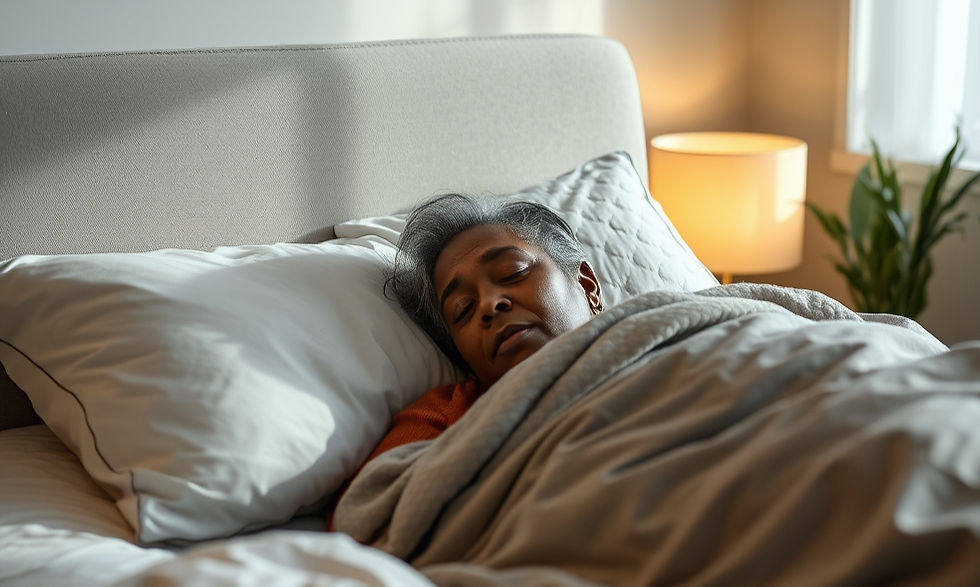Weighted Blankets & Menopause: A Cozy Solution for Better Sleep
- Lou and Teresa

- Aug 5, 2025
- 2 min read

Y’all, if you’ve ever slipped under a weighted blanket, you know it’s more than just warmth—it’s like getting a full-body hug. And for women going through menopause, that hug can be more powerful than you might think. Lately, I’ve been talking with some sister friends—women in different stages from perimenopause to menopause—who are struggling to sleep through the night. Meanwhile, I’ve been sleeping soundly, year-round, under a weighted blanket for over two years. Now, here’s my disclaimer: I didn’t have sleep problems before, but I also wasn’t going through menopause back then. Still, after hearing my friends’ stories, I started researching—and what I found made me think a weighted blanket might be exactly what they need. If you or someone you know isn’t sleeping through the night, keep reading. This just might be the solution.
Weighted blankets work through something called deep touch pressure (DTP)—gentle, even weight that helps calm your nervous system. Research shows this type of pressure can lower cortisol (the stress hormone) and increase serotonin, dopamine, and oxytocin—your “feel-good” chemicals. For women navigating hormonal changes, that means a better shot at feeling calm, grounded, and ready for sleep.
Sleep disruptions are a common part of menopause. Between hot flashes, night sweats, and racing thoughts, it’s easy to find yourself wide awake at 3 a.m. While a weighted blanket won’t stop the hot flashes, it can help your body settle back down afterward so you fall asleep faster. It also encourages melatonin production—the hormone that tells your body it’s time to rest—which can lead to deeper, more restorative sleep.
Menopause can also bring muscle tension, joint pain, and an overall sense of restlessness. The steady pressure from a weighted blanket can help your body relax physically, easing some of that discomfort. And let’s be honest—there’s something emotionally comforting about being cocooned in weight. It feels secure, steady, and soothing, which is especially valuable during the ups and downs of menopause.
If you’re thinking about trying one, here are a few quick tips:
Choose a blanket that’s about 10% of your body weight.
Go for breathable fabrics like cotton or bamboo if you run hot at night.
Opt for glass bead fillings over plastic pellets for something quieter and less bulky.
A weighted blanket isn’t a magic cure for every menopause symptom, but for many women, it can help with the two things we crave most during this stage of life: better sleep and less stress. Sometimes, the smallest comforts—like the feeling of a hug—can make the biggest difference.
Teresa



Comments